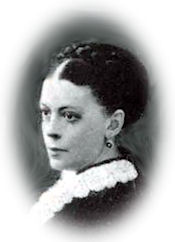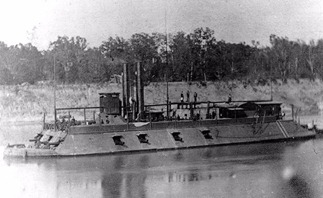Sarah C. Woolsey to Georgeanna Muirson Woolsey.
New Haven Hospital, June.
I have been so very busy that my conscience does not reproach me at all for not writing. . . . A fortnight ago our wounded came—240 of them, all dreadfully neglected and needing attention of every kind. I cannot just this moment recollect the name of the ship which brought them, but there was only one surgeon on board to care for them, no nurses and hardly any provisions; the wounds of many had not been dressed for nearly a week when they got here, and seven or eight died on the passage. For the first few days most of them were placed in tents on the hospital grounds, but since then the new Barrack Hospital has been finished, and all except about twenty very bad cases are quartered there and doing very well. They would not let any young ladies enter for the first three or four days, the sights and sounds were too bad for them. Such was the enlightened decision of the excellent incapable in charge, but Friday I worked my way in, and since then have been there nearly every day, taking charge of the linen room and giving out clothes, etc. to the men. At first everything was in dreadful confusion, but gradually our department is getting into order, and in the course of three or four days will be thoroughly systematized. A good old lady and myself are to take turns in presiding over the clothing supplies, and as she is rather inefficient and feeble, I hope to take a very big half of the time. The small corner they give us as a store-room was yesterday all shelved and cupboarded under my direction, and will be capable of holding three times the supply it did before. . . . I go up at nine and stay till seven, and all day long the nurses are coming after sheets, and shirts, and bandages, and rags, and towels, and soap, and the men stopping at the door to ask for trousers or coats, and in time I hope to get the true tailor’s measure in my eyes. Such fine, manly, patient fellows as they are. Many of them, almost all, from Michigan and Pennsylvania and New York; not one Connecticut man among them. From the linen room one can organize little rushes into the wards to see special cases, etc., so it is not to be despised even though not as satisfactory as the actual nursing would be. Just outside of our long wooden barrack is a small wooden kitchen, and there Harriet Terry and Rebecca Bacon preside over the diet for the special cases who cannot eat the hospital rations, and if one looks in there about twelve, such a smell of good things greets the nose as it does one good to experience; and arranged on the table are such nice little messes all labelled and numbered—such brown crisp toast and savory chops, and smoking beef-tea, and little messes of this and that; and later the great trays come in and carry them off down the long entry, and so, many poor fellows are made comfortable. One building, which holds eight wards, and comprises four tents full of sick, is all well managed, orderly and thriving, with good paid and excellent unpaid nursing; but in the main hospital where the housekeeper has control, it is all mismanagement, confusion and waste; really sickening to see. The men are doing pretty well though, and all of them are so happy and grateful for the care taken of them. A very nice man from the 105th Pennsylvania, for whom I was writing a letter yesterday, told me to tell his mother not to feel anxious about him, for he was cared for just as if he was at home, and had everything he desired.





